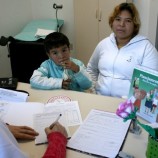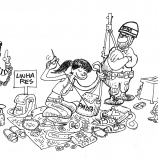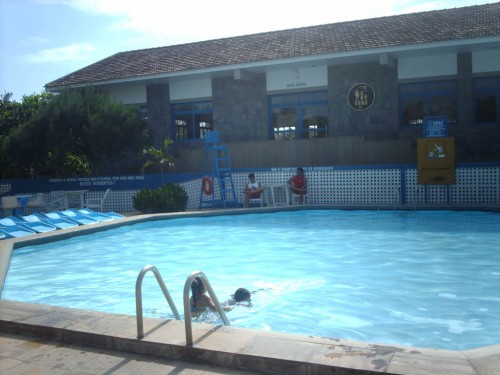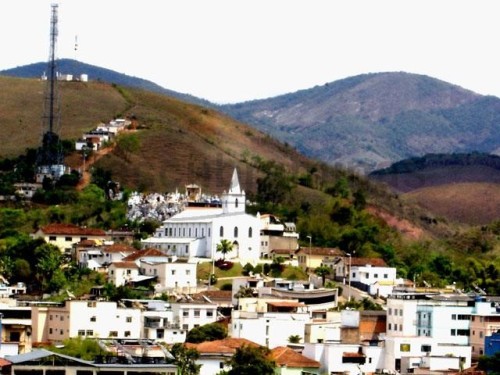1973 and 1974 – Testimony to the Memory and Truth Commission
I reencountered Gilney Amorim Viana at the opening of the International Conference on Memory, Latin America in Comparative and International Perspective, on August 14, 2012, at PUC-Rio. After the inaugural conference, which was enlivened by Doudu Diène, UN Special Rapporteur between 2002 and 2008 on contemporary forms of racial discrimination, xenophobia and intolerance, and coordinated by Paul Abram, President of Brazil’s Amnesty Commission, I could embrace that man with his whisker beard and all, as white and slim now as ever, virtually unchanged since we first met in 1973.
At that very conference, I bought his book “Poems (broken) From Prison” and asked him to autograph it. He finished making his dedication ….”in memory of Linhares,” then embraced me ardently and said: “You, the girl who always helped us in Linhares!” and asked me to go to the Commission for Truth and Memory to give a testimonial about the solidarity network of Juiz de Fora for its political prisoners of Linhares Penitentiary; their actions, their members, their stories.
Our Network
The first person that came to mind as a member of the network was Guto, Antonio Augusto Braga, a banker at the Banco Mercantil de São Paulo. He was a soldier of the democratic resistance and what we called a task man. He was a get it done, ask questions later kind of guy of the utmost confidence, generous and friendly.
He tells:
“One day, Geninho,” referring to my late husband and companion, Eugênio Paiva, “came over and said that he had a task for me. I answered, as I usually do, “You can count on me!” He then summoned me to do a job alongside the political prisoners.”
And continues:
“My first task was to buy some pocket books. I bought ZZ7, H Hour, The Wild West and Popular Mechanics. The books were presents, an elegant bribe for the officers in charge of security for Linhares Prison. In exchange for the books they let us have contact with and help inmates with personal hygiene belongings, sweets, cigarettes, books, newspapers, etc.…”
“The following Saturday, with a package of paperbacks under my arm, it was time for my baptism of political prisoners. Geninho picked me up in his red BMW bug and we went to the penitentiary, already with a bag in hand, where I continued to go for many, many Saturdays to come.
“The books accompanied our saga of solidarity alongside the political prisoners of Linhares. For the sake of discretion, the books could not have any left-wing political content. They were technical books, literature, dramas of world wars and the American civil war.”
Guto recalls, proud of his successful bribe strategy, of the time when he brought a book on espionage with a very sensual cover: “Gisele, the nude spy that shook Paris.”
Geninho and I created a solidarity network with politicized people of very reliable and strong Christian commitment. Dona Leda Schmith, of the RC (Christian Renewal) raised money, did the shopping and passed it over to Sister Terezinha of Discalced Carmelites. On Saturday, Geninho and Guto picked up the bags at the Convent of Carmel and took it to Linhares prison. When Mamia couldn’t go, because he sometimes worked on Saturdays, Guto took the bus on Avenida Getulio Vargas, with the final stop at the Linhares Church, completing the rest of the route to the Penitentiary on foot.
When we arrived at the first guardhouse, we would give the guard a book as a gift. As the guards pated us down, the prisoners would wave their hands, exclaiming their joy at our visit from far away. In this whole story about the books, there was one exchange that truly affected me for the rest of my life. One of those Saturdays when I was delivering the gift package, an imprisoned young man with a goatee beard came up to welcome me and, in a gesture of thanks, between the prison bars, handed me a book, the name of which was The Painted Bird by Jerzy Kosinski. This young man was Gilney Amorim Viana.
Their joy was visible whenever we stepped foot in the penitentiary. The prisoners stuck their hands out the windows clenching their fists. It was an unforgettable scene. We drove to the police commander, who ordered other policemen to shake down the rucksack of goods. There were always eggs and bananas in the bags…
Juiz de Fora was very cold and Guto remembers having bought many blankets for the inmates. The blankets were from the St. Vincent factory and were given the nickname “sheep skins” because they were very short. When you covered your head, your feet would be left out and when you covered one side of your trunk, the other stuck out… it really was a “sheep’s skin,” as the Mineiros would say.
When a prisoner was released and had no family waiting for them, they would go to our house, as was the case of Humberto Ramirez, who ended up staying in Juiz de Fora for a longer period of time in order to deal with the health consequences arising from the brutality of torture he had suffered.
Relatives who came to visit the prisoners stayed in my small house in a village on Mamoré, Street, in the Sao Mateus borough or at the Carmel Convent with the Carmelite Sisters, as was the case of Ephigenia, Gilney’s wife at the time.
The Discalced Carmelites, who were led by the sweet and generous Sister Terezinha, were said to be guardians of hope and faith. Ephigenia had her honeymoon with Gilney in Linhares, and it was Guto who accompanied her there for their night of love. Ephigenia’s is a beautiful and poignant story deserving of a special chapter of its own.
Many comprised the solidarity network of the political prisoners of Linhares: Sidvan, of Earns Little Window Panes, helped financially with his eyes closed; Cassadio, the dentist who sympathized with COLINA, the National Liberation Command, originally President Dilma’s own organization, which offered dental care for free. Heloisa Schmith, daughter of Dona Leda, a key person in the group’s relations with the Convent of Carmel and who had a very close and long lasting friend relationship with Ephigenia. Their affinity with one another was also due to their acting together in the women’s rights movement in the states of Minas Gerais and Pará.
Itamar and Neide Bonfatti of the Christian Family Movement were the very soul of this network and beyond their help and full support to our cause, they always upheld sermons in their own homes. These sermons, which counted on the presence of Japi, of Father Jaime, came to reinforce our political commitment to overthrow the dictatorship by profession of FAITH.
A matchless figure connected to this network of human solidarity was our dear, late and unforgettable Chacrinha. And so, let us take a look back in time and tell stories of the so far anonymous individuals that helped our comrades resist the brutality of the military regime throughout the 70’s in Juiz de Fora.
Related Articles

















